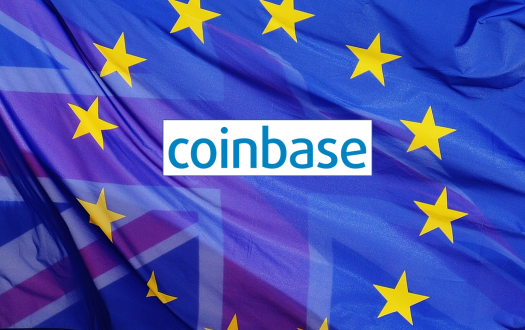
Canada Advances Bitcoin Adoption: Is Pierre Poilievre the Next Nayib Bukele?
Canada Advances Bitcoin Adoption: As Bitcoin continues to gain traction globally, the spotlight is shifting to countries and leaders who are driving its adoption. One such country making waves in the crypto space is Canada, and at the forefront of this movement is Pierre Poilievre, the leader of the Conservative Party of Canada. But could Poilievre be the next Nayib Bukele, the President of El Salvador who made Bitcoin legal tender in his country? Let’s explore the growing role of Bitcoin in Canada and whether Poilievre might lead the country toward becoming a crypto powerhouse.
Canada’s Growing Bitcoin Adoption
Canada has long been seen as a progressive country when it comes to financial technology and innovation. Over the past few years, Bitcoin adoption has steadily increased across the country, with more businesses accepting cryptocurrency and a growing number of Canadian investors entering the market.
Several Canadian cities, such as Toronto and Vancouver, have become hubs for cryptocurrency startups and blockchain innovation. In fact, Canada was one of the first countries to launch a Bitcoin exchange-traded fund (ETF) in 2021, allowing investors to gain exposure to Bitcoin without directly purchasing the cryptocurrency. This move was a significant step in legitimizing Bitcoin in the eyes of traditional investors.
Additionally, Canadian regulators have been relatively friendly toward cryptocurrencies, providing clear guidelines for businesses and investors. While the country has not yet taken the bold step of making Bitcoin legal tender, the groundwork for wider adoption is being laid.
Pierre Poilievre’s Stance on Bitcoin
Pierre Poilievre, who became the leader of the Conservative Party of Canada in 2022, has been a vocal advocate for Bitcoin and cryptocurrency. Poilievre’s stance on Bitcoin is one of the reasons why he has garnered significant attention from the crypto community. He has consistently spoken about the importance of decentralized currencies as a hedge against inflation and government overreach.
In his speeches, Poilievre has criticized central banks for their role in printing money and devaluing the Canadian dollar. He has suggested that Bitcoin offers an alternative to the traditional banking system, which he believes is inefficient and controlled by a few powerful institutions. His support for Bitcoin has resonated with Canadians who are frustrated with rising inflation and the increasing cost of living.
Poilievre’s pro-Bitcoin rhetoric has earned him comparisons to Nayib Bukele, who made headlines in 2021 by making Bitcoin legal tender in El Salvador. Bukele’s decision was a bold move that garnered both praise and criticism, but it undeniably positioned him as a leader in the global crypto space. Could Poilievre follow in Bukele’s footsteps and push for Bitcoin adoption in Canada?
Could Poilievre Be the Next Nayib Bukele?

While it’s too early to predict whether Pierre Poilievre will take the drastic step of making Bitcoin legal tender in Canada, his support for the cryptocurrency suggests that he may be open to policies that encourage Bitcoin adoption. However, several factors make Canada’s situation different from El Salvador’s, and Poilievre would have to navigate these challenges carefully.
- Economic Stability: Unlike El Salvador, which has struggled with economic instability and high inflation, Canada has a relatively stable economy and a strong national currency. Making Bitcoin legal tender in Canada could be seen as unnecessary or even risky, given the country’s economic health.
- Public Opinion: While Bitcoin adoption is growing in Canada, it still has a long way to go before it becomes mainstream. A significant portion of the Canadian population remains skeptical about cryptocurrencies, and any move to make Bitcoin legal tender would require broad public support. Poilievre would need to convince both Canadians and the business community that Bitcoin could coexist with the Canadian dollar without causing economic disruptions.
- Regulatory Landscape: Canada’s regulatory environment for cryptocurrencies is more developed than that of El Salvador, which means that any major policy changes would need to align with existing laws. Poilievre would need to work closely with regulators to ensure that any push for Bitcoin adoption is done in a way that is both legal and sustainable.
- Global Impact: Canada’s position in the global economy is vastly different from that of El Salvador. As a member of the G7 and a major trading partner with the United States, Canada’s adoption of Bitcoin would have far-reaching implications. Poilievre would need to consider how such a move could affect Canada’s international relations and its standing in the global financial system.
Conclusion
Pierre Poilievre’s support for Bitcoin and his criticism of traditional financial institutions have earned him comparisons to Nayib Bukele, but whether he will take the bold step of making Bitcoin legal tender in Canada remains to be seen. While Canada’s economic stability and regulatory framework present challenges, Poilievre’s pro-Bitcoin stance could help pave the way for more widespread adoption of cryptocurrency in the country.
As the global financial landscape continues to evolve, Canada may find itself at the forefront of Bitcoin adoption, whether through Poilievre’s leadership or through the actions of other influential figures. For now, Poilievre’s support for Bitcoin signals that Canada is moving toward a future where cryptocurrencies play an increasingly important role in the economy, but how far the country will go in embracing Bitcoin remains an open question.
[sp_easyaccordion id=”5612″]







